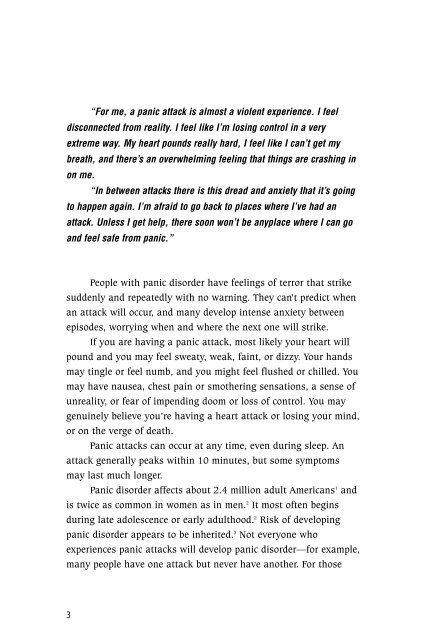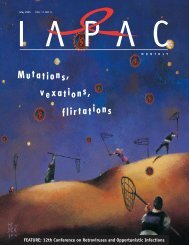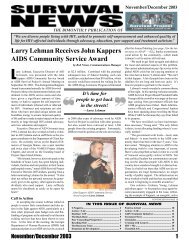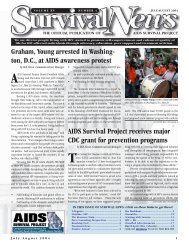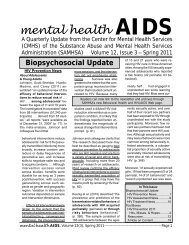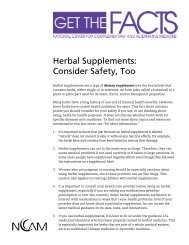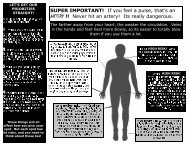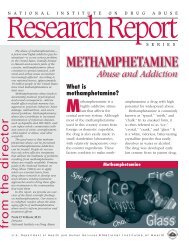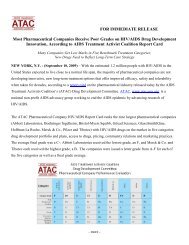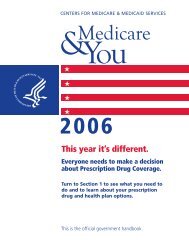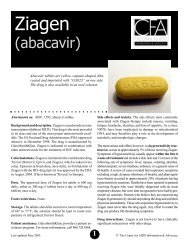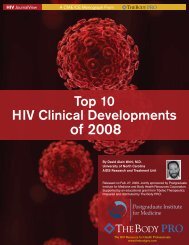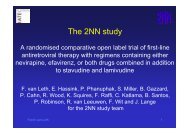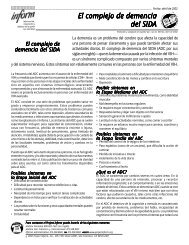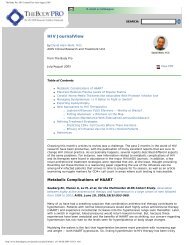Anxiety Disorders - CD8 T cells
Anxiety Disorders - CD8 T cells
Anxiety Disorders - CD8 T cells
You also want an ePaper? Increase the reach of your titles
YUMPU automatically turns print PDFs into web optimized ePapers that Google loves.
“For me, a panic attack is almost a violent experience. I feel<br />
disconnected from reality. I feel like I’m losing control in a very<br />
extreme way. My heart pounds really hard, I feel like I can’t get my<br />
breath, and there’s an overwhelming feeling that things are crashing in<br />
on me.<br />
“In between attacks there is this dread and anxiety that it’s going<br />
to happen again. I’m afraid to go back to places where I’ve had an<br />
attack. Unless I get help, there soon won’t be anyplace where I can go<br />
and feel safe from panic.”<br />
People with panic disorder have feelings of terror that strike<br />
suddenly and repeatedly with no warning. They can’t predict when<br />
an attack will occur, and many develop intense anxiety between<br />
episodes, worrying when and where the next one will strike.<br />
If you are having a panic attack, most likely your heart will<br />
pound and you may feel sweaty, weak, faint, or dizzy. Your hands<br />
may tingle or feel numb, and you might feel flushed or chilled. You<br />
may have nausea, chest pain or smothering sensations, a sense of<br />
unreality, or fear of impending doom or loss of control. You may<br />
genuinely believe you’re having a heart attack or losing your mind,<br />
or on the verge of death.<br />
Panic attacks can occur at any time, even during sleep. An<br />
attack generally peaks within 10 minutes, but some symptoms<br />
may last much longer.<br />
Panic disorder affects about 2.4 million adult Americans1 and<br />
is twice as common in women as in men. 2 It most often begins<br />
during late adolescence or early adulthood. 2 Risk of developing<br />
panic disorder appears to be inherited. 3 Not everyone who<br />
experiences panic attacks will develop panic disorder—for example,<br />
many people have one attack but never have another. For those<br />
3


